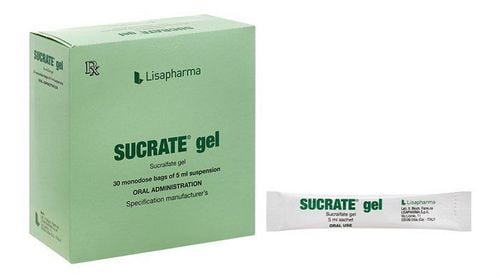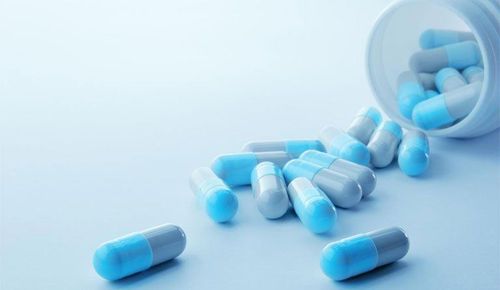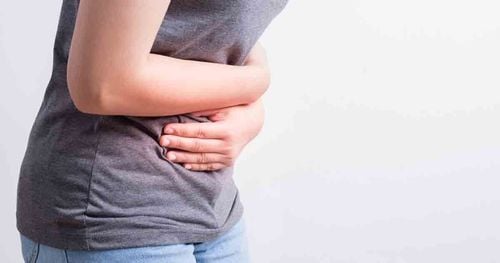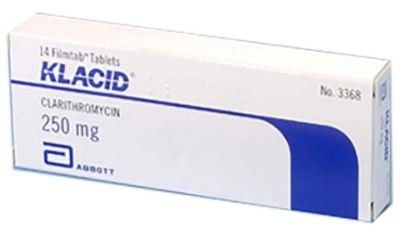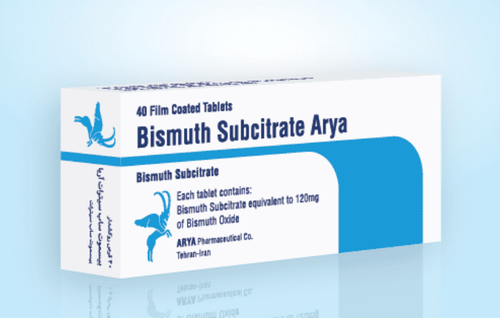This is an automatically translated article.
The article was professionally consulted with Doctor Tran Mai Phuong - Department of Pediatrics - Neonatology, Vinmec Central Park International General Hospital.Due to living conditions, the ability to screen for Hp bacteria is still limited, so the rate of people with Hp-positive gastritis is increasing, especially in children. Meanwhile, screening for diseases in children is more difficult than in adults.
1. What is HP-positive gastritis?
Helicobacter pylori is a bacteria that causes gastritis. Helicobacter pylori infection is relatively common and in Southeast Asian countries, the average infection rate is about 55-60%. The rate of children with Hp-positive gastritis is relatively high, especially in the period of weaning and kindergarten (about 2 to 6 years old).2. Why are children with HP gastritis positive?
Hp is transmitted from person to person (via mouth-to-mouth, fecal-oral, gastro-oral route). Why are children infected with Hp-positive gastritis more easily than adults? Children are susceptible to bacterial infections because they do not know hygiene in eating and drinking, along with eating habits with adults also make the risk of infection from adults higher.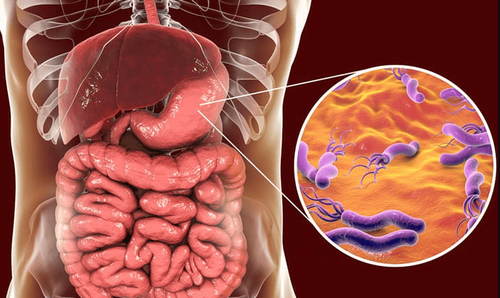
Vi khuẩn HP gây viêm dạ dày ở trẻ và người lớn
3. What are the symptoms of HP infection?
When to treat Hp-positive gastritis in children? Most people infected with Hp have no symptoms including adults and children. However, in some cases, people infected with Hp have symptoms caused by stomach ulcers such as:Pain or discomfort in the upper abdomen; Abdominal bloating and indigestion; Anorexia, weight loss; Nausea or vomiting; Black stools; Dizziness, fatigue due to anemia.
4. Diagnosis of HP-positive gastritis
Currently, the common tests used to diagnose Hp-positive gastritis include:Invasive tests: Including endoscopic gastric bypass interventions for biopsies - histology, urease test, culture, PCR, FISH Non-invasive testing: Includes stool, breath, blood, urine, and saliva tests. Before performing the Hp test, the child should be stopped from antibiotics for at least 4 weeks, stopping drugs that inhibit gastric acid secretion for at least 2 weeks.
If the child undergoes gastroduodenal endoscopy, the diagnostic criteria for Hp infection are as follows:
Culture result is positive for Hp, or There is histological evidence of Hp infection on the biopsy specimen with 1 positive test in the patient. of the following tests: urease test, PCR, FISH. If histology is consistent with Hp infection but the above tests are not available, noninvasive tests can be used to support the diagnosis. For children without gastroscopy: breath tests or stool antigens provide evidence of active H. These tests are used to diagnose Hp infection in children with chronic thrombocytopenia or in children whose parents have had gastric cancer. In addition, these two tests also help monitor progress after Hp eradication treatment.

Trẻ bị đau dạ dày cần được đến bệnh viện trong thời gian sớm để được chẩn đoán bệnh
5. Who should be screened for HP?
Children with peptic ulcers or MALT lymphoma; Children born into families with parents with stomach cancer; Children with iron-deficiency anemia are resistant to treatment; Children with chronic immune thrombocytopenic purpura;6. Treatment when infected with HP
The treatment regimen for Hp-positive gastritis is a regimen that combines at least 2 antibiotics and a drug that inhibits or inhibits gastric acid. The course of treatment lasts at least 2 weeks or can be longer depending on the case.Treatment of Hp infection in children is relatively difficult for the following reasons:
Children are difficult to adhere to treatment: Because when applying Hp eradication regimens, patients may experience side effects such as bitter mouth, nausea, digestive disorders... make it difficult for parents and children to maintain treatment, while these regimens need treatment for a long time. The rate of HP re-infection in children is quite high: According to research, the rate of HP re-infection can be up to more than 50% after 12 months in children 3-4 years old who have been successfully treated. Antibiotic-resistant Helicobacter pylori: will reduce the effectiveness of treatment drugs. Therefore, the treatment requires consultation and prescription from the doctor and the patient's commitment to treatment adherence.

Trẻ cần tuân thủ phác đồ điều trị của bác sĩ
7. Indications for treatment of HP in children
Children in the following groups need to be prescribed HP treatment:Children with peptic ulcer or MALT lymphoma confirmed by endoscopy and test results for Hp infection. Children with chronic thrombocytopenic purpura or refractory iron-deficiency anemia test positive for Hp. Children with gastritis, with positive test results for Hp, accompanied by a parent with stomach cancer; For children with clinical symptoms of gastrointestinal diseases, even with Hp test results, it is necessary to have gastrointestinal endoscopy before deciding on treatment. Note that blood tests are not used to diagnose and treat HP.
8. Prevention of HP infection
Helicobacter pylori is a contagious bacteria, in addition to being present in the stomach lining, Hp bacteria also exist in saliva, plaque on teeth and oral cavity of patients. Helicobacter pylori can be transmitted from person to person by sharing dishes, eating and drinking.Children are subject to high risk of Hpv infection because mothers often have the habit of giving food to their children, common eating habits at school and school may bring Hp bacteria into the child's body.
In addition, Hp virus still exists in the feces of an infected person, so it can be transmitted by hands (if you do not wash your hands after going to the toilet), or transmitted by intermediate objects such as mice, cockroaches, flies .. If they come into contact with a pathogen then they stick to the food.
Besides, Hp bacteria in the stomach can be transmitted during gastric bypass surgery at medical facilities if the endoscopic instruments are not cleaned properly.

Trẻ nên rửa tay sạch sẽ trước khi ăn
Clean hands; Ensure hygiene habits in eating and drinking; Avoid sharing eating utensils such as sharing bowls of soup, picking up food for each other, dipping condiments, drinking from the same glass of water, serving food for children, etc., Avoid sharing personal hygiene tools such as: toothbrush; Adults infected with Hp should avoid seasoning and feeding food to children.
9. When to take your child to see a doctor?
Parents need to regularly monitor their children, especially when they see the following symptoms in their children, they need to take the child to a medical facility for examination.Severe stomach pain Vomiting blood Blood in stools, or black stools The child has pain in the area below the ribs, the pain subsides after eating. Although one of the signs of Hp-positive gastritis is abdominal pain. However, not all stomach pain is caused by H. For children infected with Hp, to avoid antibiotic resistance, parents should not arbitrarily buy antibiotics for children to take, the treatment process needs to be prescribed by a doctor.
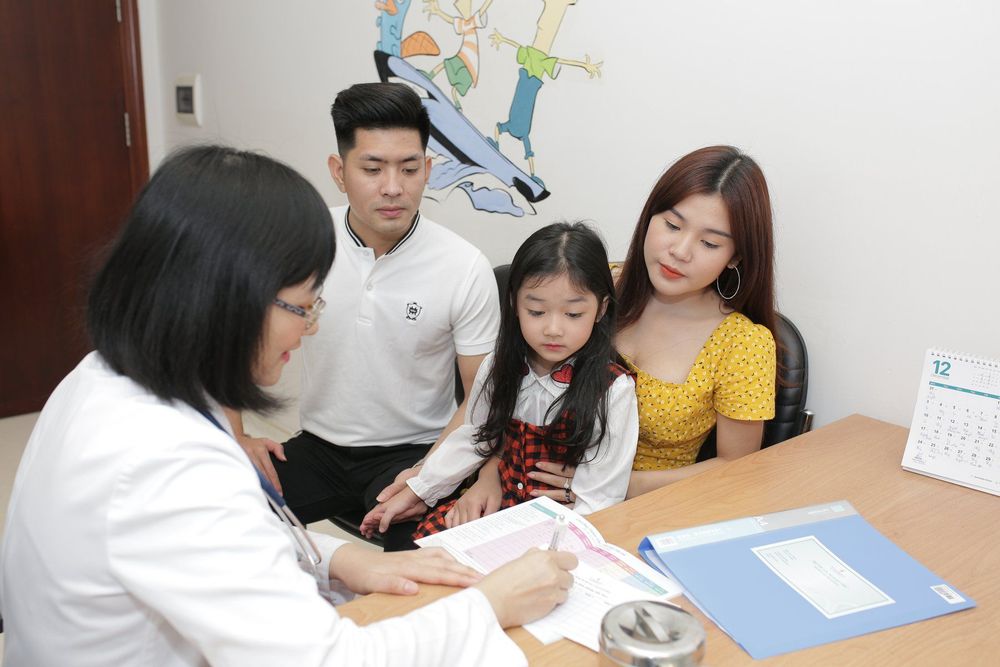
Cha mẹ nên đưa trẻ đến gặp bác sĩ chuyên khoa để được thăm khám và điều trị kịp thời
Vinmec International General Hospital offers children's general health check-up packages to help protect baby's comprehensive health. In the health check-up package, your baby will have a comprehensive examination, from eyes, teeth, blood pressure, weight to necessary tests, combined with diagnostic imaging. The examination package helps you check your baby's overall health, screen for symptoms for early detection and treatment if needed.
Please dial HOTLINE for more information or register for an appointment HERE. Download MyVinmec app to make appointments faster and to manage your bookings easily.




